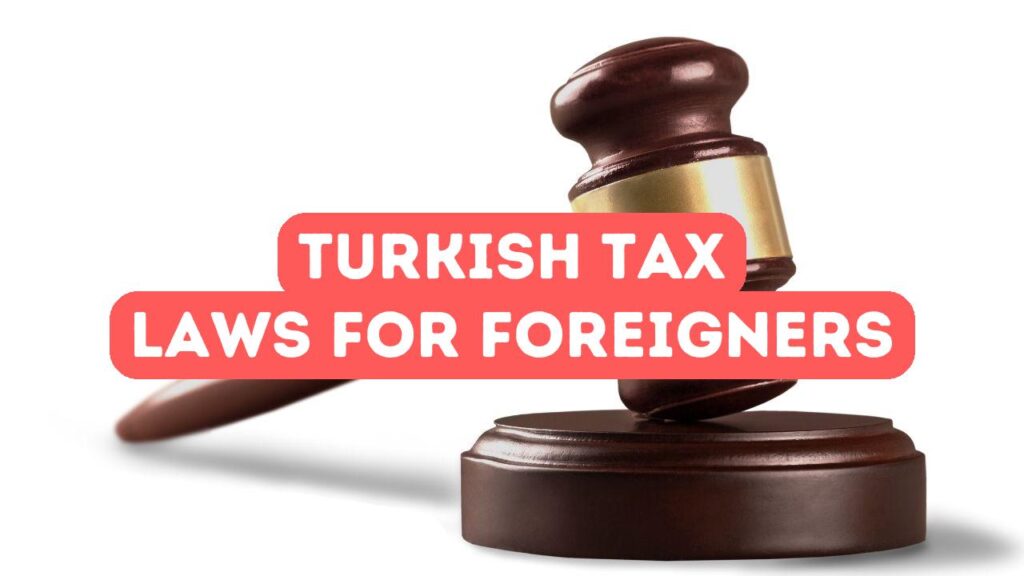Navigating the complexities of Turkish tax laws can be a daunting task for foreigners looking to invest or settle in Turkey. At Gordion Partners, we understand the importance of having a comprehensive understanding of the tax landscape to ensure compliance and optimize financial outcomes. Turkey offers a myriad of opportunities, from real estate investments to obtaining citizenship through various programs. However, a clear grasp of the Turkish tax regime is essential to leverage these opportunities effectively. In this blog post, we will provide a thorough overview of the key tax regulations that foreign investors and expatriates should be aware of, shedding light on income tax, property taxes, and the implications for residency and citizenship applications.
Navigating Tax Residency: Key Points for Expatriates in Turkey
Tax residency is a crucial concept for foreigners in Turkey as it determines their tax obligations. In Turkey, an individual is considered a tax resident if they reside in the country for more than six months in any calendar year or if they have established a permanent home in Turkey. Tax residents are subject to taxation on their worldwide income, while non-residents are taxed only on their Turkish-sourced income. Understanding this distinction is vital for expatriates to ensure they fulfill their tax responsibilities accurately. Compliance with residency rules can also impact eligibility for various benefits and programs, including citizenship applications.
For expatriates planning long-term stays or residential investments in Turkey, it’s essential to maintain detailed records of your time spent in the country, as well as any permanent ties such as property ownership or family presence that could influence your tax residency status. Another critical aspect to consider is the Double Taxation Agreements (DTAs) Turkey has with multiple countries. These agreements are designed to prevent tax residents from being taxed twice on the same income and can offer significant relief if the individual is also liable to pay taxes in their home country. Availing these benefits requires meticulous documentation and awareness of specific provisions in each treaty, making professional advisory services highly recommended to navigate these complexities effectively.
Notably, changes in tax residency status can have significant implications for expatriates. If you are planning to become a tax resident, or are transitioning back to non-resident status, understanding the timing and process of these changes is crucial. Failure to manage this transition properly could result in unexpected tax liabilities and potential penalties. Additionally, periodic reviews of your tax status and financial planning strategies can help you stay compliant with Turkish tax laws while optimizing your tax efficiency. At Gordion Partners, we specialize in providing tailored tax advisory services to help you manage these transitions smoothly and ensure you take full advantage of the available tax benefits and programs.
Real Estate Transactions: Turkish Tax Implications for Foreign Investors
When it comes to real estate transactions, foreign investors in Turkey should be aware of several key tax implications to optimize their investments. One of the primary considerations is the Value Added Tax (VAT), which may or may not be applicable depending on specific conditions such as the property’s age, location, and the status of the seller. Additionally, real estate acquisition in Turkey is subject to a title deed transfer tax, generally calculated as 4% of the property’s sale price, split equally between the buyer and the seller. Another important element is the capital gains tax, which is imposed on profits derived from selling real estate acquired within the past five years. Understanding these taxes is crucial for foreign investors to plan their real estate ventures strategically and ensure compliance with Turkish regulations.
Beyond these primary taxes, foreign real estate investors should also consider the implications of annual property taxes and rental income taxes. Annual property tax rates in Turkey generally range from 0.1% to 0.6% of the property’s assessed value, depending on its type and location. For those generating rental income, it is essential to note that rental income is subject to a progressive income tax rate, which can range from 15% to 40% based on the annual earnings bracket. Properly declaring and paying these taxes is not only crucial for compliance but also plays a significant role in any future citizenship applications under Turkey’s real estate investment programs. At Gordion Partners, we guide our clients through these intricacies, ensuring both compliance and optimization of their real estate investments.
Navigating the tax landscape for real estate transactions can significantly impact the financial viability and long-term benefits of your investment. Foreign investors need to be mindful of potential tax incentives and exemptions that Turkey offers to encourage real estate investments. For example, properties purchased with foreign currency and held for a minimum period might qualify for VAT exemptions, providing substantial savings. Furthermore, although property taxes are influenced by the property’s assessed value, some regional incentives may offer reduced rates, particularly in developing areas. By working with Gordion Partners, you can identify and leverage these tax benefits effectively, ensuring that you make informed decisions that align with your financial goals and comply with Turkish tax laws. Our expert guidance helps mitigate risks and maximizes the potential returns on your real estate investments in Turkey.
Income Tax Obligations: What Foreign Clients Need to Know in Turkey
Foreign investors and expatriates in Turkey are subject to distinct income tax obligations based on their residency status. Individuals who reside in Turkey for more than six months within a calendar year are considered tax residents and are required to report their worldwide income. Non-residents, on the other hand, are only taxed on income derived from Turkish sources. It’s crucial to note that Turkey has a progressive tax system, with rates varying from 15% to 40%. Moreover, Turkey has established double taxation treaties with numerous countries to prevent the same income from being taxed in both Turkey and the taxpayer’s home country. Understanding these regulations helps ensure compliance and potentially maximize tax savings.
In addition to understanding residency status, foreign investors should also be aware of various deductions and exemptions available under Turkish tax laws. For example, individual taxpayers can benefit from deductions related to personal insurance payments, education, and health expenditures, which can significantly lower their taxable income. Additionally, Turkey offers special incentives for expatriates, such as exemptions on certain allowances and benefits related to overseas employment. It’s also important to be mindful of the filing deadlines and payment schedules, as failing to comply can result in penalties and interest charges. By staying informed about these provisions, foreign investors can better navigate the tax landscape and take full advantage of the opportunities available to them.
One critical aspect that foreign investors and expatriates must understand is the process of declaring and paying income taxes in Turkey. Tax returns must generally be filed annually by March 31st of the following year, and payments can be made in two installments, the first by March 31st and the second by July 31st. The Turkish Revenue Administration provides an online portal for tax filing, making the process more convenient. It is advisable to seek professional guidance to ensure accurate and timely submissions. Additionally, keeping detailed records of all income, deductions, and related documents is essential for any potential audits or reviews by tax authorities. Properly managing these commitments not only ensures compliance but also builds a foundation for a sustainable and lucrative financial presence in Turkey.






